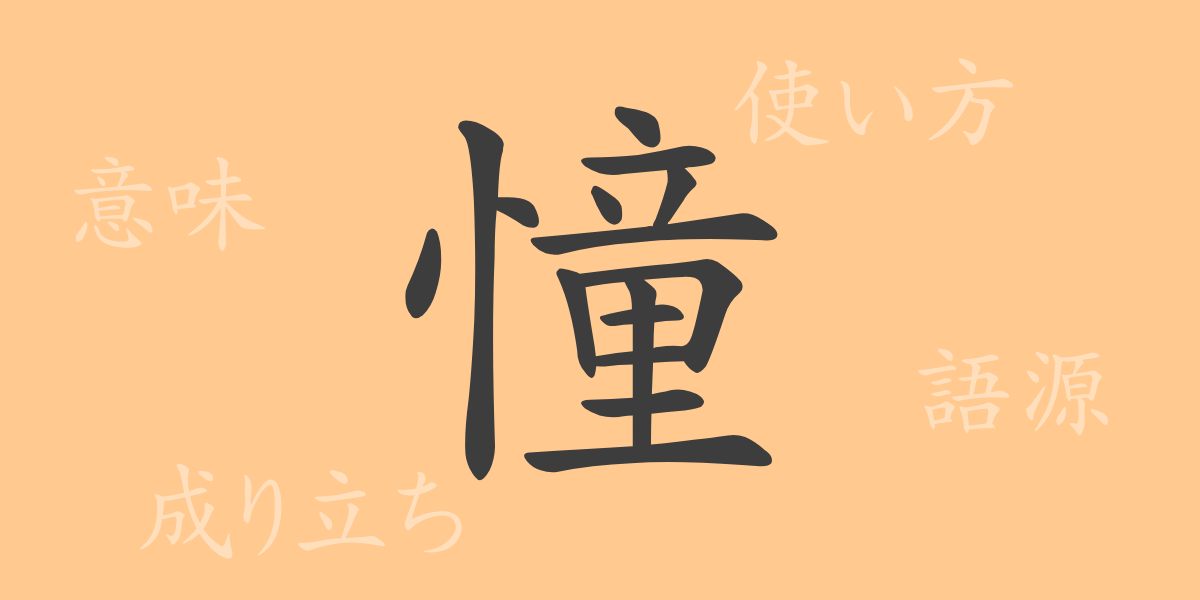The Japanese script is known for its rich expressive capacity, each Kanji embedding unique history and meaning. “憧(ショウ)” is one such Kanji, used to express profound emotions deep within our hearts. Though commonly seen, many might not fully understand its origins, meanings, or applications. This article explores the world of “憧,” enhancing our understanding of its use in Japanese culture.
Origins of 憧(ショウ)
The Kanji “憧” combines the radical “忄(りっしんべん)” indicating the heart, with “童,” symbolizing a childlike or pure heart. Initially depicting the sound of a lamb’s cry, it evolved to express pure longing or aspiration. Historically used in the form “憧憬,” it conveys a longing gaze towards something distant—a deep yearning or aspiration.
Meaning and Usage of 憧(ショウ)
“憧” primarily conveys longing or a strong desire towards something ideal or unattainable, often symbolizing youthful innocence and pure emotion. It’s used to describe deep emotional responses towards something distant or hard to achieve, evident in terms like “憧れる” (to long for) and “憧憬” (deep yearning).
Readings, Stroke Count, and Radical of 憧(ショウ)
Understanding the fundamental aspects of “憧” can deepen appreciation for its usage:
- Readings: On’yomi (音読み) is “ショウ,” Kun’yomi (訓読み) is “あこがれる.”
- Stroke Count: “憧” consists of 17 strokes.
- Radical: The radical is 心部(りっしんべん), associated with the heart and feelings.
Phrases and Proverbs Using 憧(ショウ) and Their Meanings
“憧” enriches various expressions, demonstrating the depth of feeling it represents:
- 憧憬 (しょうけい): A deep yearning, akin to gazing far into the distance.
- 憧れの的: An object or subject of deep admiration or desire.
- 憧憬の念: A strong feeling of aspiration or longing.
Conclusion on 憧(ショウ)
The Kanji “憧” beautifully captures the essence of pure longing and aspiration within our hearts. By exploring “憧,” we turn inward to our feelings and aspirations, reaffirming our dreams and ideals. In Japanese culture, “憧” embodies a concept deeply resonant and valued among people. Through this article, understanding the profound meanings and applications of “憧” allows us to appreciate the richer world of Japanese language and expression.

























